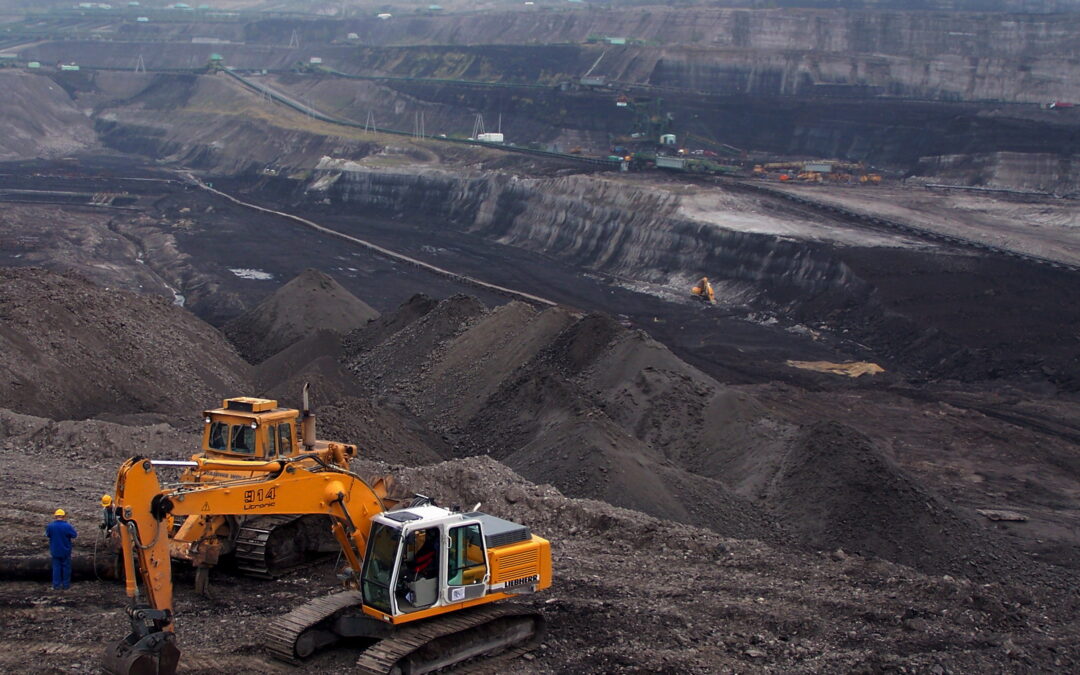In a ruling welcomed by Poland’s government, the Supreme Administrative Court (NSA) has overturned the recent decision by a lower court to suspend environmental approval for a coal mine that helps produce 7% of the country’s electricity.
Last month, the provincial administrative court in Warsaw – ruling on a legal challenge filed, among others, by a German city located near the mine and the Czech and German branches of Greenpeace – found that Turów open-cast lignite mine causes a risk of significant damage to the environment.
That ruling was condemned by the government, which said it threatened Poland’s energy security. “A court ruling that doesn’t take into account the interest of Poles but does take into account foreign interests is unlawful,” said Prime Minister Mateusz Morawiecki.
A Polish court has suspended environmental approval for one of Poland's largest coal mines.
The government has condemned the ruling, accusing the court of "unlawfully" acting in the "foreign interests" of German and Czech groups that brought the case https://t.co/hYQIBldTJh
— Notes from Poland 🇵🇱 (@notesfrompoland) June 7, 2023
An appeal was filed against the lower court’s decision by the General Director for Environmental Protection, a government appointee who reports to the environment ministry; by PGE, the state-owned energy firm that runs the mine; and by the national prosecutor’s office.
A ruling on that appeal was issued today by the NSA, which is the highest court on administrative issues. It agreed with the government’s argument, finding that the lower court had not properly taken account of the consequences of its ruling for the public interest.
“The [NSA] emphasised that there is no doubt that energy security is a constitutional value, because it is one of the guarantees of state independence and security of citizens,” said the top court’s spokesman, Sylwester Marciniak, quoted by broadcaster TVN.
“The Supreme Administrative Court has accepted our complaint,” celebrated climate and environment minister Anna Moskwa, outlining a list of deficiencies they had identified in the lower-court ruling.
Naczelny Sąd Administracyjny przyjmuje nasze zażalenie w sprawie #Turów. Podnosiliśmy 5 argumentów wskazanych w postanowieniu NSA
1. Nieproporcjonalność środka i brak wyważenia wszelkich dóbr i wartości
2. Brak zindywidualizowanej, wewnętrznie spójnej oceny prawnej stanu…— Anna Moskwa (@moskwa_anna) July 18, 2023
However, one of the organisations involved in the original legal complaint against Turów notes that the NSA ruling does not bring the case to an end.
“Today’s ruling means only that the interim measure of suspending the enforceability of the environmental decision for the Turów mine was refused,” said Agnieszka Stupkiewicz of the Frank Bold Foundation.
“The [lower] court will [still] decide at the end of August whether the environmental decision was issued in accordance with the law,” she added. Her group and the other complainants argue that the environmental decision, which allowed the mine to continue operating beyond 2026, was issued illegally.
NSA uchylił wstrzymanie decyzji środowiskowej dla kopalni #Turów. Wyjaśniamy, co to oznacza i co będzie dalej się działo w sprawie Turowa: https://t.co/GNIcMib72U pic.twitter.com/UdvpryPUZI
— Fundacja Frank Bold (@FrankBold_PL) July 18, 2023
Main image credit: Anna Uciechowska/Wikimedia Commons (under CC BY-SA 3.0)

Daniel Tilles is editor-in-chief of Notes from Poland. He has written on Polish affairs for a wide range of publications, including Foreign Policy, POLITICO Europe, EUobserver and Dziennik Gazeta Prawna.




















